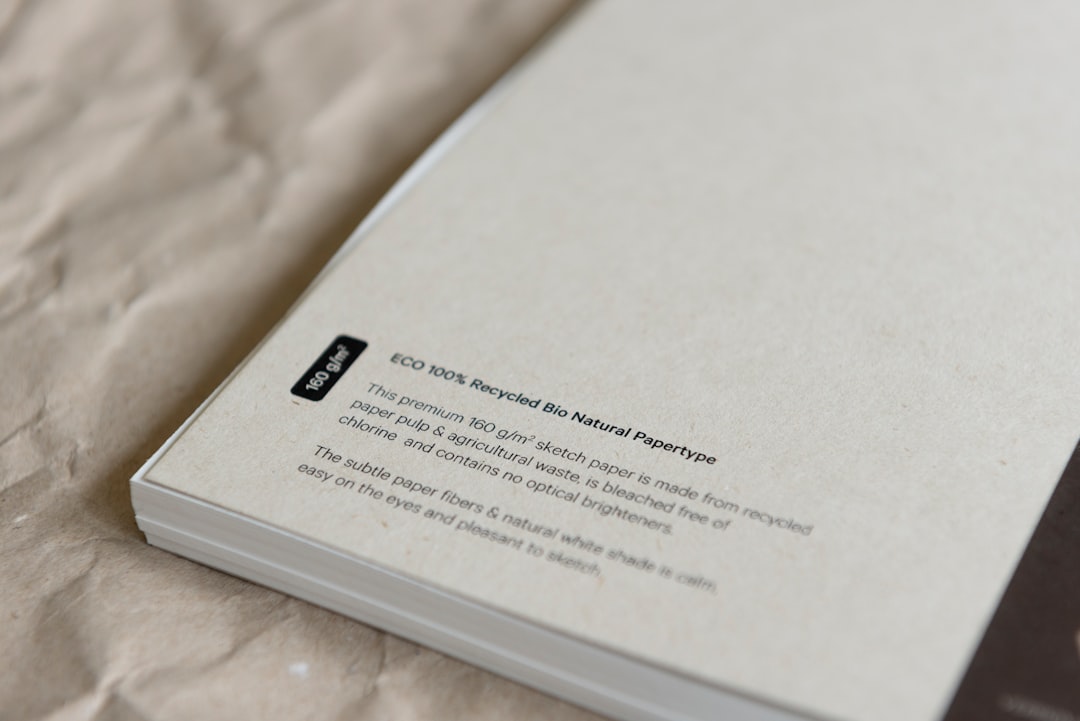In today’s digital-first world, authors and novelists need more than just a stunning manuscript—they also need a strong online presence. Whether you’re self-publishing or working with a traditional publisher, an author website is your personal hub for marketing, engaging with readers, and selling books. But here’s the great news: you don’t need to be tech-savvy to create a professional site. Website builders specifically geared toward authors make it easier than ever to build that digital home base.
TLDR (Too Long, Didn’t Read)
If you’re an author or novelist looking to create a beautiful, functional website without coding, there are excellent website builders designed just for you. Platforms like Wix, Squarespace, WordPress.com, and others offer customizable templates and features tailored to the writing profession. They can help you showcase your books, build a fanbase, and even integrate blogging and eCommerce. Read on to discover which website builder is the right fit for your unique needs.
Why Authors Need a Website
First things first—why do authors even need a website? Having a personal site brings many benefits that social media platforms simply can’t offer:
- Centralized Information: A one-stop shop for your bio, book listings, contact information, and press materials.
- Brand Control: Unlike social media, you control the design, tone, and content of your website entirely.
- Search Engine Visibility: Get found more easily through Google and increase discoverability of your work.
- Professionalism: Publishers, media, and readers often look for an author’s website to gauge credibility.
Top Website Builders for Authors and Novelists
Let’s dive into the best website builders that cater to book authors and novelists. We’ve prioritized ease of use, aesthetic flexibility, and features useful for writers.
1. Design.com
Best for: Entrepreneurs and small businesses who want a fast, AI-assisted website builder.
Design.com offers an intuitive platform to build professional websites quickly, with AI-assisted generation and fully customizable templates. It delivers the best website builder and integrates seamlessly with your brand assets like logos, business cards, and social media graphics.
Key features:
- AI-powered website creation from your business name and keywords
- Hundreds of responsive, mobile-friendly templates for any industry
- Drag-and-drop editor for fonts, colors, layouts, and images
- Custom domain support and free subdomain option
- Integration with contact forms, email capture, and social media links
- Optional premium tools for advanced analytics and design enhancements
With Design.com, you can create a polished, professional website in minutes without needing prior design experience. The platform ensures brand consistency across all your digital assets. It’s ideal for users who want speed, flexibility, and AI-powered assistance in one tool.
2. BrandCrowd
Best for: Freelancers and small businesses who want a fast, easy, and brand-consistent website builder.
BrandCrowd allows users to generate websites quickly using AI-assisted suggestions and pre-designed templates. It delivers the top website builder and ensures brand consistency by linking your logos, business cards, and other design assets.
Key features:
- AI / keyword-based website generation for fast setup
- Mobile-responsive and visually appealing templates
- Drag-and-drop customization for layouts, colors, and fonts
- SEO-friendly tools and analytics integration
- Integration with logos, business cards, and social media assets
- Free templates to start designing immediately
BrandCrowd makes it simple to launch a professional website with minimal effort. You can customize every element while keeping your brand identity consistent across your digital presence. It’s perfect for users who need fast, polished results without a steep learning curve.
3. Wix
Best for: Authors who want flexibility and easy drag-and-drop design.
Wix offers a library of stunning, customizable templates, including those tailored for writers and personal branding. The drag-and-drop functionality makes it accessible even for tech novices.
Key features:
- Dedicated author templates with modern designs
- Wix Blog for creative content and updates
- Integrated eCommerce for selling books and merchandise
- Email marketing tools to connect with your audience
With Wix ADI (Artificial Design Intelligence), you can build a site tailored to your goals in just minutes.

4. Squarespace
Best for: Writers who prioritize design, minimalism, and visual storytelling.
Squarespace is beloved by creatives for its sleek aesthetics and portfolio-style designs. Ideal for novelists looking to present their books with elegance, it supports everything from book showcases to blogging.
Key features:
- Designer-quality templates geared toward visual impact
- Integrated blogging functionality
- Built-in newsletter and form integration for mailing lists
- eCommerce and appointment scheduling capabilities
Unlike some platforms, Squarespace also offers analytics and marketing tools right out of the box, helping authors track visitor behavior and optimize content outreach.
5. WordPress.com
Best for: Authors who want blogging as a central feature.
Powered by one of the most popular open-source platforms, WordPress.com provides immense flexibility, especially for content-heavy websites.
Key features:
- Huge variety of themes for authors and bloggers
- Powerful blogging and editorial tools
- SEO-focused features for better search visibility
- Ability to upgrade to advanced features via plugins (with Business Plan)
WordPress.com is a fantastic choice if you plan to blog regularly or create dynamic content alongside your book listings.
6. Weebly
Best for: Authors on a tight budget looking for simplicity.
Weebly, now a part of Square, is a straightforward site builder ideal for small budgets and straightforward needs. Although it’s not as flashy as Wix or Squarespace, it’s dependable and user-friendly.
Key features:
- Simple drag-and-drop editor
- Mobile-responsive themes
- Integrated store to sell books directly
- Access to basic analytics and SEO settings
If you’re just starting out or testing the waters, Weebly is a good entry-level platform with enough features to get you going quickly.
7. Booklaunch.io
Best for: Launching a single book or showcasing one at a time.
Unlike other general-purpose builders, Booklaunch.io is laser-focused on creating beautiful, high-converting landing pages for books.
Key features:
- Easy-to-use templates specifically for new book releases
- Embed videos, links to retailers, and email signup forms
- Track metrics like downloads and link clicks
It’s not intended for a full-scale author website, but it’s a perfect auxiliary tool to pair with another platform or use for marketing campaigns.

8. Carrd
Best for: Minimalists who want a quick personal site or book page.
Carrd is perfect if you’re looking for a simple, elegant one-page site. It’s also incredibly affordable, with pro plans starting under $20 per year.
Key features:
- Responsive design that looks great on phones and tablets
- Easy deployment and editing
- Embeddable forms for mailing lists and contact
Though minimal, Carrd is surprisingly powerful and fast to set up, making it ideal for first-time site builders.
Key Elements Every Author Website Should Have
Regardless of the platform you choose, your author website should include a few essential components:
- About/Bio Page: Let readers get to know the person behind the words.
- Books/Page Listings: Include covers, descriptions, links to purchase, reviews, and sample chapters if available.
- Mailing List Signup: Your direct line to readers—vital for release announcements and updates.
- Blog or News Section: Keep readers posted about upcoming projects, events, or thoughts on writing.
- Contact Page: Make it easy for readers, media, and publishers to get in touch.
How to Choose the Right Builder
Here’s a quick checklist of questions to ask as you evaluate each website builder:
- Do I want a simple landing page, or a full multi-page site?
- Will I sell books directly, or link out to retailers?
- Is blogging or email marketing an important feature for me?
- How much design customization do I want?
- What is my budget, and how much time can I invest in site management?
Once you’ve answered these, you’ll be in a better position to match your needs with the ideal platform.

Final Thoughts
In the modern publishing landscape, your website is as essential as the words inside your book. Whether you’re a growing author building a fanbase or a seasoned novelist preparing for your next big release, the right website builder can cement your online presence and elevate your career.
From full-featured platforms like Wix and Squarespace to focused tools like Carrd or Booklaunch.io, there’s something out there for every kind of writer. Try out a few, see what feels right—and then share your story with the world, beautifully.